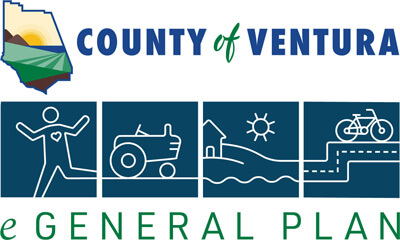Sustainable farming and ranching practices ensure that the viability of the land for future agricultural use can continue into the future. The use of fertilizer in Ventura County accounted for approximately 60 percent of countywide agricultural greenhouse gas (GHG) emissions in 2015. Fertilizers commonly used in commercial agriculture decompose over time in soil to produce nitrous oxide (N2O) gasses, which are harmful GHGs. The addition of these GHGs contribute to the overall pollution emissions in the County.
Truly sustainable farming and ranching also requires agricultural practices and operations that are less dependent on fossil fuels, an energy source that is typically used to run most agricultural related equipment. In 2015, gasoline- and diesel-powered off-road agricultural equipment other than irrigation pumps accounted for 27 percent of countywide agricultural GHG emissions. For existing diesel equipment, renewable diesel is a cost-effective alternative fuel option. This reduces the need for equipment modifications or replacements. Although the supply of renewable diesel is currently far exceeded by that of conventional diesel, the state is already making efforts to increase the supply of renewable diesel in the short- and long-term through the Low Emission Diesel regulation and the Low Carbon Fuels Standard.
The policies in this section seek to enhance the sustainability of agriculture in the county by transitioning away from fossil fuels to renewable energy sources.
